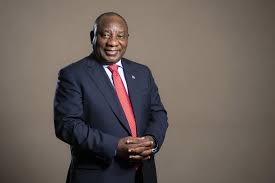Tensions between South Africa and the US have intensified after President Trump announced a 30% tariff on South African imports, prompting condemnation from President Ramaphosa and raising fears of economic fallout and weakened trade ties.
Ramaphosa Rejects Trump’s 30% Tariff


Diplomatic and economic tensions between South Africa and the United States have sharply escalated following President Donald Trump’s announcement of a sweeping new 30% tariff on all South African imports, set to take effect from 1 August.
The decision, described by the White House as a corrective measure to address “long-standing trade imbalances,” has been met with swift condemnation from South African President Cyril Ramaphosa, who labelled the move “unilateral and economically reckless.” The tariffs are expected to deal a significant blow to South Africa’s export-driven sectors, including agriculture, textiles, and the automotive industry.
“This decision is not only unjustified, it is profoundly damaging to our economy and undermines decades of economic cooperation,” President Ramaphosa said in a statement from Pretoria. “The United States remains our second-largest trading partner, and actions such as this risk destabilising a mutually beneficial relationship.”
The newly imposed tariffs come on the heels of a prior suspension of South Africa’s trade preferences under the African Growth and Opportunity Act (AGOA)—a US legislation that provides eligible African nations with duty-free access to American markets. While the Trump administration has not formally withdrawn South Africa from AGOA, analysts suggest that the latest development signals a de facto end to the country's duty-free benefits under the scheme.
President Trump, however, has defended the tariffs as a necessary response to what he described as “persistent and unfair” trade practices by South Africa. “We must put American workers first,” he stated during a press briefing. “For too long, these imbalances have hurt US industries and jobs.”
South African officials dispute these claims, arguing that the trade relationship has been largely balanced and mutually beneficial. According to the Department of Trade, Industry and Competition, the US had a modest trade surplus with South Africa in recent years, casting doubt on the Trump administration’s assertions.
Economists warn that the tariffs could have far-reaching consequences, not just for bilateral trade, but for investor confidence and broader diplomatic relations. South Africa’s automotive sector, which exports a substantial portion of its vehicles to the US, is expected to be particularly hard-hit, with potential job losses looming.
Despite the escalating rhetoric, both governments have confirmed that negotiations are ongoing in a bid to avert a full-blown trade rift. Diplomatic channels remain open, with trade envoys from both nations expected to meet in Washington in the coming weeks.
Nonetheless, the dispute adds to a growing list of disagreements between Pretoria and Washington, ranging from foreign policy stances to investment frameworks. As the 1 August deadline looms, all eyes are on whether diplomacy can prevail over confrontation.
For now, businesses, workers, and policymakers on both sides of the Atlantic face growing uncertainty in what was once considered a strong and stable economic partnership.

 বাংলা
বাংলা  Spanish
Spanish  Arabic
Arabic  French
French  Chinese
Chinese 
